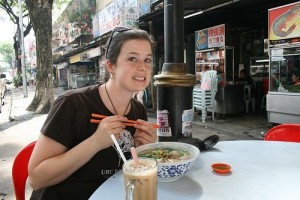Don’t talk about religion or politics. That is usually sound advice to avoid confrontations at the family dinner table over holidays or what to discuss with your hairdresser.
But food? Oh yes. I have come to realize that food is an extremely emotionally charged subject. What food you put in your body is a very personal choice influenced by culture, religion, upbring. Parents are under intense pressure to feed their kids food that is going to make them healthy and give them the best shot at success in life, and possibly face public shaming if they make the (perceived) wrong choice.
There is a reason people roll their eyes at the vegan at the dinner party explaining why they can’t eat what you’ve cooked for them. It’s akin to the Jehovah’s Witnesses showing up at your door. They want to convert you, you don’t want to be converted.
Lately I have seen a flood of misinformation about food and agriculture being pushed with a message of fear. This is toxic, that will give you a tumour, if you eat that you’re responsible for everything in the ocean dying. Eep. Talk about pressure.
So, as a scientist I want to counter-attack these falsehoods with facts. But that doesn’t work. You can’t fight an emotional fight with facts. So how do I fight back? I don’t really know yet. I’m learning. We recently had Dr. Kevin Folta talk on our campus about communicating science. One point he made was that one of the most credible voices in science with the general public is the ‘mom scientist’. Sweet, that’s me. I’m a mom scientist!
So here goes. I feed my kids GMOs. Gasp! I know…blasphemy from an organic agricultural scientist. But let’s be realistic. Who hasn’t bribed their child with a few goldfish crackers made with GM canola oil to get them into the car in a timely fashion?

Is this food in Kuala Lumpur GMO free? How do you say GMO in Malay? Who cares, it’s delicious!
We buy organic milk and yogurt, but not because regular milk is full of toxins, because I like the regulations around animal welfare enforced on organic dairy farms.
I buy organic produce when I can, because I like the farming system better as a whole, not because glyphosate is going to give them cancer. But the organic produce selection is pretty small in Truro, NS this time of year so that conventionally grown broccoli is going to do just fine. Also, if all the world’s agriculture was suddenly made organic we would have a serious supply issue. The global agricultural systems is just not set up for that. People would starve. We need conventional agriculture too.
So as a mom scientist, I encourage you all to question your food; what’s in it and how it’s made. But make sure your find a good source of information. I know that’s a big ask. I’m not even really sure where to send you for a good, one-stop food resource. Maybe you have a mom scientist friend too. Or an any scientist friend. Or a dietitian friend. Or a farmer friend.
Oh hey, you could ask me! Leave a question in the comments if you like and I can research it and ask some of my expert science-y friends if I can’t find the info myself, and put it into a future blog post. Fun! (I promise I’m not getting paid by Monsanto.)

